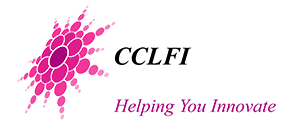Practicum in the Workplace: Learning KM by Doing KM
Learning from practicing is far better than learning from just listening to a lecture or reading a book. Furthermore, practice is more effective and value-adding if it is done within the learner's workplace and it addresses a workplace problem. This is why this KM course revolves around the workplace practicum.
According to McCall's 70-20-10 rule on learning, most successful managers learned 70% from work experience (especially from tough jobs), 20% from people (especially tough bosses) and only 10% from reading, training courses and conferences. According to research done by Stanford Professors Pfeffer and Sutton, knowledge that is actually used in the workplace is more likely knowledge learned from the workplace than from other sources such as schools or media.
Here is feedback from a past student, Ms. Elaine Ocampo: (I accept feedbacks after I had submitted the final grades)
"The course was very helpful not only to me but also to my organization. The practicum didn't feel like a mere school project but a tangible contribution to improvement in our office. This has been a great motivation to really strive to do well in the practicum. In my case, the success of my practicum no longer only meant a good grade at the end but as a means for me to prove how useful what I am studying (in TMC) is to the everyday operations of my workplace. I believe this is a very effective approach to learning. This is very effective to me since time and again, I have proven that I am a kinesthetic learner. It was also very useful to learn from the practicum of others. I was able to get new ideas to share in my office and I'm very excited about them. I'm actually considering an idea for my TM 299 project which was triggered by a practicum of one of my classmates.
"Thank you very much for a very productive semester."
Effectiveness is best judged, not by the professor, but by the internal customers of the workplace practicum and by the learner's superior. The former is why interview of internal (and/or external) customers is the most important input in selecting the most appropriate KM practicum topic. The latter is why I welcome emailed feedback from the superior at the end of the semester. The final grade is very dependent on the superior's feedback.
The steps to follow in doing your practicum are as follows.
- Week 1-3: IMPORTANT: Inform your boss about your KM course and its requirement for a workplace practicum, and ask his or her permission to conduct the KM assessments. Tell your boss that the purpose of KM is to enhance productivity including to address workplace problems.
- Week 3: Once you have a "GO" signal, proceed with your QBPA. If your boss disapproves, inform me and we will identify an alternative non-workplace practicum or term paper for you.
- Before Week 6: Once your QBPA results are in, email them to me and I will email you back and a shortlist of appropriate KM practicum tools or solutions for discussion with your boss to make final selection of your KM practicum topic. If there are specific issues or problems, we will discuss it.
- Before Week 8: Arrive, in consultation with your boss, on the final choice of KM practicum topic.
- Weeks 8-10: Conduct a library/Internet research about your topic; submit a short report on what you learned. Select two articles or book chapters about your topic and submit to me short summaries of each.
- Weeks 8-13: Plan and implement your KM practicum. Consult me any time if you have questions or problems.
- Before Week 14: Make a PowerPoint presentation on your practicum: its objective, how it was implemented and your results. The PowerPoint presentation must be useful, as is, for briefing your boss and your workplace colleagues about your KM practicum - in case the need arises for you to do so. The practicum report must be in the form of a manual or set of instructions for implementing the KM tool - which must be useful for your colleagues in case your boss later decides to adopt your KM tool as part of the standard procedures in your organization.
- Week 17: Request your boss to email me his or her evaluation of your work.
